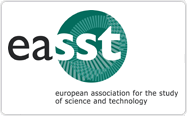Innovating Relations – or Why Smart Grid is not too Complex for the Public
DOI:
https://doi.org/10.23987/sts.55289Abstract
Revamping the electricity infrastructure to allow for an increased usage of renewable energy sources is a matter of concern in many parts of the world. In Europe, a major policy question is how to move energy demand to periods with surplus of renewable energy in the grid. In this paper we follow prominent Danish and German delegates working towards realizing the intelligent electricity infrastructure commonly known as ‘smart grid’ envisioned to be a significant actor in the management of renewable energy. Starting out with a view on smart grid that recognizes it as a partially existing object, we attend to its gradual emergence by focusing on two models and a metaphor evoked to represent smart grid development. As we contrast and compare these representational objects, smart grid emerges as a potential ‘thing’. Following Latour a ‘thing’ is a gathering of many actors agreeing and disagreeing about what the thing ‘is’ (its ontological status). In the paper we show how smart grid innovation both emerges – and fails to emerge – as an object of relevance to a broader public. Even though users play an important role in the imagination of experts, a gap remains between the experts and those who smart electricity infrastructures will come to affect. Concerned with this gap we argue that Science and Technology Studies must pay attention to how smart grid development gets constructed as a public problem in specific imaginative spaces of opportunity and closure.





